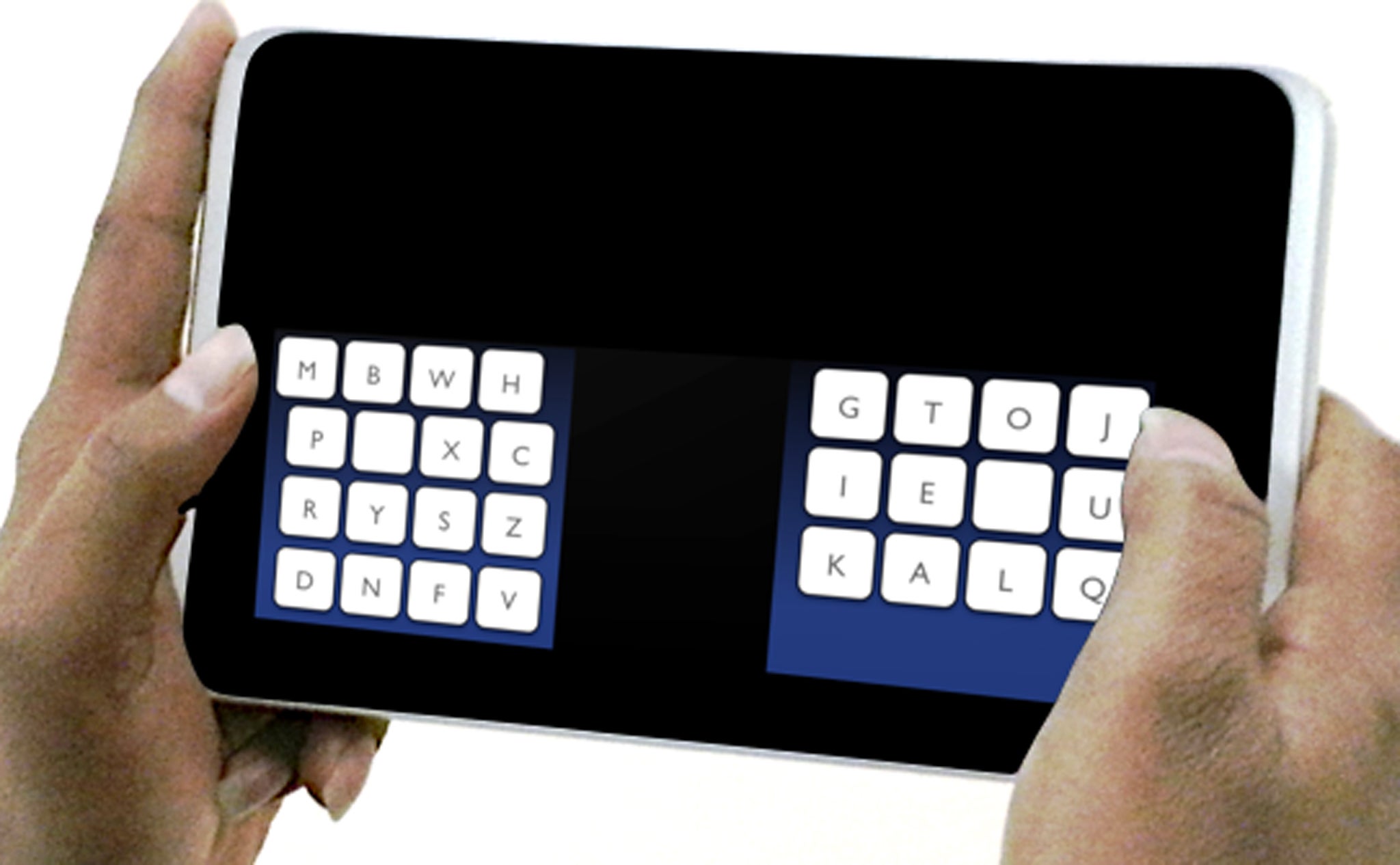Scientists take on the might of Qwerty with Kalq 'thumb keyboard' for smartphones and tablets that can get you typing 34% faster

It's always risky business taking on a classic. Just ask the guy who invented the MiniDisc player.
But academics from the UK, Europe and the US have come together to challenge the might of one of the Twentieth Century's much taken-for-granted design triumphs, by claiming that their new smartphone keyboard allows users to type 34 per cent faster than the beloved Qwerty lay out.
The Kalq keyboard, similarly named after the order four letters appear, was developed by scientists at the Max Planck Institute for Informatics in Germany, the University of Montana and the University of St Andrews, and sees letters placed across two squares on either side of the phone or tablet screen, allowing users to type with their thumbs.
Letters are apparently laid out scientifically to reduce the distance thumbs have to travel to hit the next key, with the left-hand thumb able to hit a consonant as soon as the right thumb has typed a vowel.
After some time training on the Kalq, test subjects hit a rate of 37 words per minute, with a five per cent error rate — a third better than the average performance on a touchscreen Qwerty keyboard.
Kalq takes up less than half the screen and the size of letters can be adjusted for those of us with less dainty digits.
Those behind Kalq say eight hours of practice is enough to master its use, which is far less than the 20-30 hours to get you up to speed on touch-typing with ten fingers on a Qwerty.
Dr Per Ola Kristensson, Lecturer in Human Computer Interaction in the School of Computer Science at the University of St Andrews, said: "Before abandoning QWERTY, users rightfully demand a compelling alternative. We believe Kalq provides a large enough performance improvement to incentivise users to switch and benefit from faster and more comfortable typing.”
The real test will come when Kalq appears on the Android app store next month as users are asked to ditch the status-quo in favour of this brave new thumb-based world.
Subscribe to Independent Premium to bookmark this article
Want to bookmark your favourite articles and stories to read or reference later? Start your Independent Premium subscription today.

Join our commenting forum
Join thought-provoking conversations, follow other Independent readers and see their replies